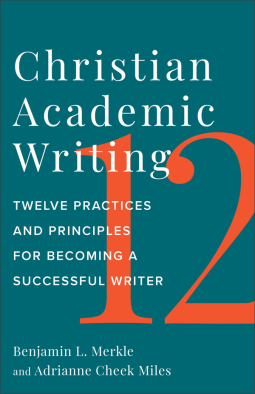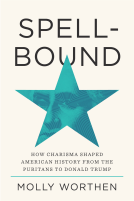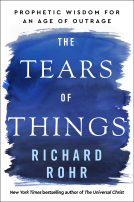
Christian Academic Writing
Twelve Practices and Principles for Becoming a Successful Writer
by Benjamin L. Merkle; Adrianne Cheek Miles
This title was previously available on NetGalley and is now archived.
Send NetGalley books directly to your Kindle or Kindle app
1
To read on a Kindle or Kindle app, please add kindle@netgalley.com as an approved email address to receive files in your Amazon account. Click here for step-by-step instructions.
2
Also find your Kindle email address within your Amazon account, and enter it here.
Pub Date Mar 19 2024 | Archive Date Apr 09 2024
Baker Academic & Brazos Press | Baker Academic
Talking about this book? Use #ChristianAcademicWriting #NetGalley. More hashtag tips!
Description
This concise guide to writing in Christian academic settings offers twelve practices and principles for becoming a successful writer. It is written by two authors with a proven track record of publishing success who have a passion for helping students and budding authors improve their writing. This book distills their years of experience to offer inspiration and encouragement for writing and publishing academic works. It is ideal for students writing papers in Christian academic settings and for young academics who want to further develop their writing skills.
Christian Academic Writing is full of helpful and proven advice that will motivate readers to reach their goals. It focuses on best practices and emphasizes the finished product. Each short, readable chapter includes questions inviting readers to take their writing to the next level.
Advance Praise
“The difference between a good writer and a great writer is that great writers deliberately seek to improve their writing skills. In this book, Merkle and Miles show you how to write with diligence and discipline, how to make your words work for you, and how to develop your own voice and vision for writing. Merkle and Miles offer terrific tips and techniques that aspiring and accomplished writers will return to time and time again.”—Michael F. Bird, deputy principal, Ridley College, Melbourne, Australia
“Christian Academic Writing is both practical and inspiring. Merkle and Miles not only offer their own invaluable experience as academic writers, but they also point to some of the best resources available for all writers. I will recommend this book often.”—Karen Swallow Prior, author of The Evangelical Imagination: How Stories, Images, and Metaphors Created a Culture in Crisis
“This is an excellent and valuable book. I wish it had been available forty years ago! It is clear, practical, and encouraging. It is also brutally honest. Writing can be a labor of love, but it can also be a task filled with overwhelming disappointments. My colleagues and friends Ben Merkle and Adrianne Miles address these realities, but they also provide a strategy to keep you in the game of writing. Scholar and student alike will be well served by this work. I know I was.”—Daniel L. Akin, president, Southeastern Baptist Theological Seminary
“Writers of all levels will find help in this book. It is clear, personal, and even enjoyable. More than that, it is wise, filled with guidance for those trying to get started, hope for those who feel stuck, and ideas for those who have published for decades.”—Chris Morgan, dean, School of Christian Ministries, professor of theology, California Baptist University
“There are lots of reasons why biblical scholars and theologians want to write but don’t. I can’t promise that this book is going to overcome all of them, but I can tell you that it is doing some serious damage to the excuses I’ve given myself in recent years. If you’re new to the professoriate and wondering how you’ll stay in the writing groove you inhabited during graduate school, or you’ve been a teacher or administrator or in another professional role for a while and have lost the momentum but not the desire, this is the book for you. Plenty of encouragement, plenty of advice, plenty of wisdom. Thank you, Ben and Adrianne!”—Michael Kibbe, associate professor of Bible, Great Northern University
Available Editions
| EDITION | Other Format |
| ISBN | 9781540965998 |
| PRICE | $17.99 (USD) |
| PAGES | 176 |
Available on NetGalley
Featured Reviews
Reading CHRISTIAN ACADEMIC WRITING: Twelve Practices and Principles for Becoming a Successful Writer by Benjamin L. Merkle and Adrianne Cheek Miles is akin to having lunch with more experienced, knowledgeable, and kind friends. Successful friends, in other words, who want you to succeed as they have.
Drawing on a wide range of writing books, both general and specific to academic publishing, the authors offer practical advice as well as encouragement to beginning writers, and even experienced ones. At the outset of any new project, many writers have renewed anxiety and self-doubts, no matter how experienced. The authors discuss the multiple blocks that can arise, including “the magnum opus delusion, the impostor syndrome, the cleared deck fantasy,” and so forth.
The book contains careful footnotes, an excellent Annotated Bibliography and useful Appendices geared to Christian book and article publishing, along with one listing Religious Academic Organizations. It is light on discussing the efficient use of technology for research and writing. Maybe that is another book.
The Christian witness informs the text but is not heavy-handed. Almost anyone struggling to get into professional publication would profit from the wise advice and no-nonsense inspiration the authors provide. I particularly enjoyed the authors’ emphasis on the value of sharing the research results. Publication should not be considered a vanity project, but a contribution to the public discourse on the topic of study.
Christian Academic Writing by Benjamin Merkle and Adrianne Miles is a wise and practical guide to academic writing. Topics cover every part of the writing process including choosing a topic, improving craft, revising and reviewing, and publishing and presenting.
The information is clear and presented in a way that gives you a checklist to consider and work through for whatever writing project you have. And the advice comes from the authors’ own knowledge and experience in their fields. Sections that were particularly helpful for me were on time management in the writing process (such as diving your work and schedule into A-time and B-time) and on common myths (so many of them were things I needed to hear and identify).
Throughout the book, there are many resources mentioned for improving different aspects of the writing craft. The book also includes information on Christian academic journals and publishers which is an excellent resource for remembering, as the authors emphasize, that writing isn’t over until the research is shared.
Overall, the book will be an encouragement to anyone interested in academic writing and who is looking for a resource that won’t just tell you what you should be doing, but how—practically and in the middle of other responsibilities—to do it and do it well.
My kindle tells me I have 142 highlights in this 176-page book. Here are just two of them:
“There is no virtue in sounding smart but failing to communicate.”
“Passion is good. Discipline is good. But disciplined passion is even better. Pursue writing with passion, but also pursue it with discipline. That is when the magic begins.”
 Conrade Y, Reviewer
Conrade Y, Reviewer
Is academic writing only for academics? No. Is it limited only to people with writing experience? Not really. Is it difficult to even write to publish? Difficult but not impossible. Writing is hard work. Getting it published is even harder. Yet, we should not be deterred by anything difficult. Let our passion for sharing our knowledge and experiences inspire us to write. One cannot be a successful writer without first becoming a writer. Read widely but also write frequently. Just like the title says, this book looks at 12 "practices and principles" to encourage Christian writing as an academic writing. Although both authors come from different backgrounds, their purpose for writing this book is similar: To encourage Christians to write and share their knowledge and expertise with the public. It is not a how-to-write book. It is a book that gives "practical and proven advice" to encourage writers to write. Professors, pastors, teachers, anyone with advanced degrees, or those with lots of working experience can benefit from this resource which aims to bring more people into the writing fold. They do not mince their words when they say writing is hard work. Indeed it is. Sometimes, becoming too distracted by any perceived difficulty can put off any aspiring writer.
Hopefully one or more of these 12 tips can prompt one toward the writing journey. Briefly, these are as follows:
1) Love Your Topics
2) Keep Reading Materials With You
3) Redeem Time for Reading and Writing
4) Bust Your Writing-Related Myths
5) Don't Wait to Write
6) Make Writing a Habit
7) Keep Writing, Even After the First Draft
8) Solicit Feedback
9) Don't be Afraid of Feedback
10) Participate in Professional Conferences
11) Work to Improve Your Writing
12) Finish What You Star
Depending on which part of the writing journey we are in, and what type of writing we are doing, the applicable principles will vary. The first tip about loving your topic is an essential one. If there is no passion, there is no motivation to even write about it. If one is writing a dissertation for an advanced degree, without passion, writing quickly becomes mundane and even detestable. Writing out of obligation can work as far as finishing the project is concerned. Writing out of passion however will not only complete the work with polish, it opens up multiple windows for deeper research. Sometimes I marvel at professors who manage to write reams and reams of Bible resources like commentaries and reference works. Where do they find all the time and the energy to put such huge resources together? Passion is the word. The second tip about keeping reading materials with us is a given. Apart from the simple practice of photocopying copies of our research materials, the authors share many essential academic books not just to write well but also to read well. The third tip is about making good use of whatever time we can afford. Granted people are perennially busy, but we all need to find creative ways to fit our writing habits together. One of the most important reminders is about redeeming time from some of our time-wasting habits such as mindless scrolling on social media pages or binge-watching YouTube videos that have no relevant purpose. Planning and self-awareness are key. The fourth helps us put aside five myths or barriers we subconsciously place in front of us. Some of these myths are quite familiar ones, especially the one about the "Magnus opus delusion" where one lets self-expectations discourage writing in the first place. The fifth tip pushes back against procrastination while the sixth and seventh urge us to persevere through habits and determination respectively. The eighth tip is about humility and willingness to receive feedback about our writings. There are many places where we can solicit such feedback. From writing communities to peer reviews, expert professors to experienced professionals, feedback not only helps us to write well, it reminds us that we need community. The ninth tip addresses the reality of fear of negative feedback. Whenever we solicit feedback about our writing, there will be a fair share of critiques that can throw a spanner into our writing works. By learning to accept feedback with humility, we can become better writers who produce better works. The tenth tip builds upon the previous one by encouraging us to participate in writing conferences or any forms of writing workshop. The eleventh tip reminds us that good writing is re-writing. The twelfth tip cheers us toward completing our writing projects. Readers are encouraged to publish where possible. Publish to share.
The authors end with several lists of publishing resources such as academic religious publishers, academic journals, and religious academic organizations.
My Thoughts
==============
This is an excellent resource to encourage writing. If I can summarize in two words, this book tells us to "Just write." Like one famous philosopher who once said that the journey of a thousand miles begins with a single step, the road to writing begins with the first word. One question that bugs me is this. What makes a "successful writer?" How do we really measure success? Is it measured according to the number of works we publish? Or is it about writing a bestselling book? Perhaps I can suggest a couple of ways to make sense of this word. At the elementary level, for beginner writers, success is about starting and completing a mini-writing project. Whether it is an article, a book review, a blog, a monograph, or even a contribution to an anthology, this elementary level is mainly for first-time writers or publishers. This book nudges such novice writers to attempt greater projects. Success for elementary writers means completion of these short writing projects. Most writers would start here. For elementary writers, principles 1 to 7 will be helpful.
The second level will be the intermediate level, something that I would call the more experienced writers. For such writers, principles 8-10 will be most relevant. Of course, principles 11 and 12 can challenge intermediate writers to move on to publish at reputable publishers. They will need lots of encouragement as publishers tend to reject many first-time writers.
The third level will be the advanced level, where writers are well-known and seasoned. I marvel at how many of these experienced writers could churn out books every few months. Such people are unusually gifted. For this group, they could easily share their experience with the rest of the writing community.
If there is one feedback I could give about this book, it will be the lack of advice for self-publishers. I know of some academics who are wary of self-publishing as there is a lack of checks and balances about the quality of the writings. Nevertheless, just like there are good and not-so-good books published by even the most reputable publishers, there are also good and not-so-good books in the self-publishing industry. Perhaps, the authors could share their thoughts and wisdom about self-publishing in any future editions.
Finally, good writers are readers. Good readers are also writers. Both writers and readers are eager learners. For such people, especially the more academic ones, this book is an essential read.
Benjamin L. Merkle (PhD, The Southern Baptist Theological Seminary) is the Dr. M. O. Owens Jr. Chair of New Testament Studies and research professor of New Testament and Greek at Southeastern Baptist Theological Seminary in Wake Forest, North Carolina. He is the author, coauthor, or editor of more than forty books, including Greek for Life, Exegetical Gems from Biblical Greek, Linguistics and New Testament Greek, Beginning with New Testament Greek, and Going Deeper with New Testament Greek. He is also the editor of Southeastern Theological Review.
Adrianne Cheek Miles (PhD, University of Texas at Austin) is associate professor of English and linguistics at Southeastern Baptist Theological Seminary in Wake Forest, North Carolina, where she teaches courses in writing, literature, communication, and linguistics.
Rating: 4.5 stars out of 5.
conrade
This book has been provided courtesy of Baker Academic via NetGalley without requiring a positive review. All opinions offered above are mine unless otherwise stated or implied.
 Levi M, Reviewer
Levi M, Reviewer
Christian Academic Writing: Twelve Practices and Principles for Becoming a Successful Writer by Benjamin L. Merkle and Adrianne Cheek Miles is a helpful writing resource specifically for those in higher Christian academia and in the field of biblical studies and theology. However, is there enough original content to justify its use considering the seemingly endless resources on how to write academic papers? The answer is potentially. The book is split into twelve chapters that briefly cover the best writing practices that Ben Merkle has utilized in his prolific career as an academic. Most of these chapters feel rather repetitive and unnecessary in light of the endless resources on academic writing. The strongest and most helpful chapters are his last four. In these Merkle and Miles discuss the importance of seeking out feedback, participating (and presenting) at academic conferences, taking the feedback and improving your writing, and not stopping on a project until it reaches the finale (which in academic writing should be publication). These final chapters, especially their chapter on participating in academic conference and publishing your work, are the most original contributions as well as probably the most important. Each chapter also includes helpful exercises and suggestions to better the reader’s writing. However, the real gold lays in the appendices of the book. At the end of the book Merkle and Miles provide their readers with an appendix that provides information on thirty of the most notable Christian publishers as well as the process of how to publish with them, and what type of work they usually take. There is a second appendix that follows the same model with academic religious journals. They then end with an annotated bibliography that provides their reader with more resources on academic writing. Overall, this book does little to reinvent the wheel, but it does enough to justify its place on any academic’s bookshelf. Its short chapters are easy and enjoyable to read and serve as good reminders of many writing practices. For any graduate student or postgraduate student who is looking for a useful resource on how to write in the fields of biblical studies and theology this is not the end point, but it does serve as an excellent introduction. I received a free copy of this book via NetGalley, but all opinions expressed are the reviewer’s own.

















